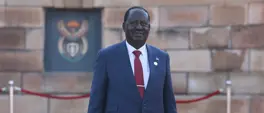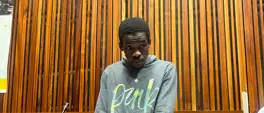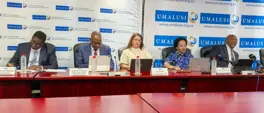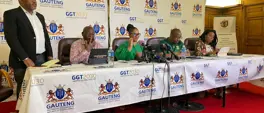BEC scam warning: If you send invoices via email for payment, TRIPLE check the banking details
Paula Luckhoff
17 April 2024 | 19:06Wendy Knowler has the lowdown on avoiding costly Business Email Compromise scams.
A warning this week from Wendy Knowler on The Money Show about avoiding a particularly pernicious financial scam - what's known as Business Email Compromise, or BEC.
The consumer journo last addressed the topic when a top law firm was ordered in January to pay millions to a client who made payment for a property to a fraudster.
The court said the firm had not taken sufficient steps to prevent such a fraud.
More recently, Knowler was alerted to another case where a buyer narrowly avoided falling prey to a BEC scam when required to pay a R400,000 deposit on a property.
RELATED: Financial scams on the increase: 10 tips to protect yourself
In a nutshell, what happens is that fraudsters hack into email servers and intercept emails from a service provider to a client, asking for payment by means of an attached invoice.
"Unbeknownst to the payer, a fraudster has intercepted the email, removed the company’s banking details and added theirs, so the client pays the fraudster instead of the company that is owed their money."
Wendy Knowler, Consumer Journalist
Conveyancing attorneys are a prime target for this form of fraud, given the large amounts of money going into and out of their trust accounts with property purchases.
The Legal Practitioners Indemnity Insurance Fund NPC (LPIIF) has been warning attorneys since 2015 to take steps to warn their clients about it, says general manager Thomas Harban.
But it’s not only attorneys who are being targeted, Harban told Wendy Knowler.
"Fraudsters are now also trying to get their hands on payouts from RAF matters, the high value of the latter making them an obvious target, along with motor dealerships - any business which sends invoices to their clients as email attachments."
Wendy Knowler, Consumer Journalist
Knowler urges consumers and businesses emailing invoices for payment to follow Harban's advice to escape being targeted.
'I would not give or receive banking details in an email without a prior phone call or other means of communication', he said.
"The most prudent action is to have a face to face consultation with the client (or any other person making payment) and to exchange banking information at that meeting."
“If a consultation is held over Teams or Zoom etc. video must be turned on and the respective parties must read their banking details into the record before sending them."
“We recommend that banking details are exchanged at the beginning of the relationship when the FICA process... is undertaken, and not just before payment must be made."
Thomas Harban, General Manager - Legal Practitioners Indemnity Insurance Fund NPC
BOTTOM LINE: Triple check! If you receive an invoice for payment, before paying it, Google their number, make that call and verify their banking details
Listen to the conversation on the audio player at the top of the article
Get the whole picture 💡
Take a look at the topic timeline for all related articles.
Trending News
More in Local

15 October 2025 18:07
Investigating Directorate says magistrate in Crime Intelligence case shouldn't have recused himself

15 October 2025 17:59
CPUT fee hike concerns lead to task team and student protest

15 October 2025 16:58
SIU finds highly-connected businessmen were irregularly awarded tenders to the tune of R2bn












